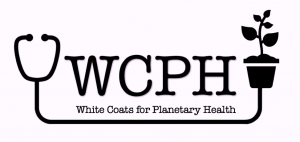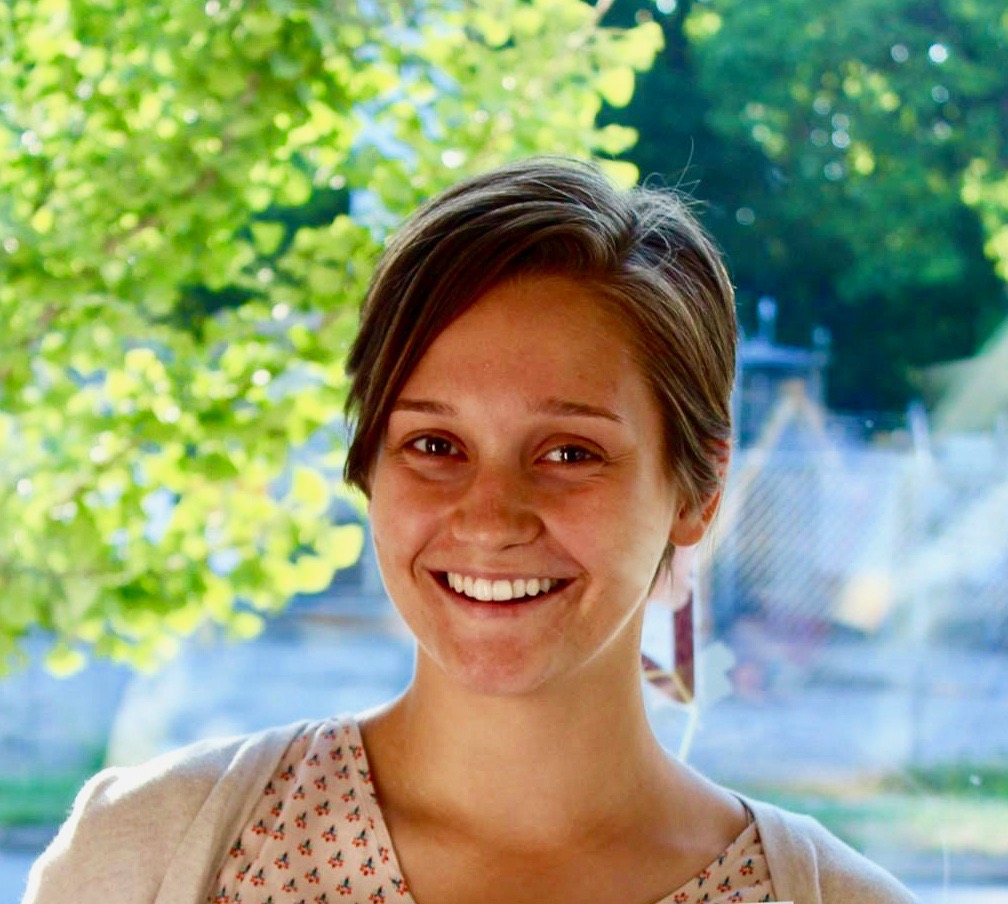“Not in my operating room” he told me, with an air of finality. I had just finished pitching initial plans to address the absence of environmental sustainability at Michigan Medicine, but it wasn’t going well.
Through inefficient energy use and waste production, Michigan Medicine, like many other health systems in the U.S., is straining our planet’s ability to support human life. Daily, we are inundated with news about the climate crisis, so we take care to recycle and turn off the lights when leaving a room, but research shows that to truly create a sustainable society, larger systems, like Michigan Medicine, will have to undergo significant transformation in their daily practices. Even small changes at enormous institutions can have exponential impact–and yet, change is very difficult.
I first observed this problem during my surgery rotation, but in the turmoil of my clerkship year, I was limited to just observing what I considered wasteful and inefficient practices. Now, with the freedom of the Branches I was going to address it, head on. After finishing my clerkship year, I spent months I reviewing the literature, studying hospital trends, surveying employees, and evaluating possible solutions used by other hospitals around the country. Finally, I had an action plan. The first step was unveiling the plan to a surgeon mentor, the mentor; a faculty member well-known to medical students for providing the resources and inspiration to transform medicine. But after listening to my plan his reaction was lukewarm at best.
I was deflated, frustrated, and admittedly maybe even a little unsurprised. It felt as though my hard work researching, observing, and developing solutions had been futile. I started to question if these goals were even aligned with a thriving health system. Maybe if the rest of society made big changes, health systems wouldn’t need to be environmentally sustainable. On that day, I couldn’t yet see what the future would bring but since then, I’ve continued to learn a lot about the challenge of transformation. Here are some of my most important lessons:
 Find your allies. I discovered over the next months that many of my fellow medical students were also thinking about the problem of environmental sustainability in the health system. We had been working in silos and had reached the same lack of enthusiasm from the faculty we approached. A common message we all received was: “I agree personally with your position, but we have other priorities at this time.” We decided that we could achieve much more through collective efforts, so we formed White Coats for Planetary Health (WCPH). After drafting our vision, we invited members of the medical student body to a meeting to gauge interest in this topic and mobilize support and the result was inspiring. More than 10% of the UMMS student body expressed their interest, and many of them showed up physically ready to help us mobilize our efforts.
Find your allies. I discovered over the next months that many of my fellow medical students were also thinking about the problem of environmental sustainability in the health system. We had been working in silos and had reached the same lack of enthusiasm from the faculty we approached. A common message we all received was: “I agree personally with your position, but we have other priorities at this time.” We decided that we could achieve much more through collective efforts, so we formed White Coats for Planetary Health (WCPH). After drafting our vision, we invited members of the medical student body to a meeting to gauge interest in this topic and mobilize support and the result was inspiring. More than 10% of the UMMS student body expressed their interest, and many of them showed up physically ready to help us mobilize our efforts.- Take unlikely chances. In the midst of this student support, RISE (which you can check out here) announced a funding opportunity arose to use “educational practices and interventions to address key health issues currently facing society”. We decided WCPH needed to expand its vision. RISE seeks to empower passionate faculty, staff, and students at Michigan Medicine, to pursue ideas
 which could positively transform human health through medical education. We imagined what might be possible if this grant award and associated support could create formal curriculum in sustainability and climate change for medical students. We could empower an entire cohort of medical trainees to take mitigating and adaptive action in the complex to curb the negative impact of environment on human health. In a few short months, the work of six dedicated medical students had created a group, developed collective goals, found diverse support, and made headway in challenging current systems. I began to understand that the ripple effect of hundreds of trainees engaging sustainability in their future careers could be enormous.
which could positively transform human health through medical education. We imagined what might be possible if this grant award and associated support could create formal curriculum in sustainability and climate change for medical students. We could empower an entire cohort of medical trainees to take mitigating and adaptive action in the complex to curb the negative impact of environment on human health. In a few short months, the work of six dedicated medical students had created a group, developed collective goals, found diverse support, and made headway in challenging current systems. I began to understand that the ripple effect of hundreds of trainees engaging sustainability in their future careers could be enormous. - Persistence is a form of leadership. As a medical student, you learn to be comfortable following. Yet medical students will soon transition to residency and eventually the practice of medicine and need to become leaders to create new solutions for the diverse and evolving challenges we will encounter in our daily work. Newly invigorated by my fellow student allies, I met with the surgeon mentor again, determined to sway him with evidence of student support. As it turned out, that deflating conversation several months prior, had been a pivot point for him. After our meeting, he started observing hospital’s practices, reading the literature and engaging with experts abroad. His perspective had taken a radical turn, and now he wanted to know how we could make change faster.
- Challenge yourself to develop adaptive expertise. Adaptive expertise, as compared to ‘routine expertise’, is the ability to use trans-disciplinary knowledge to innovate solutions for novel challenges.[1] This expertise is desperately needed in a modern health system where health professionals must adapt to change, generate new knowledge about complex systems, and direct it at improvement of self and work environment. As we move toward change in healthcare, we are often limited by real and (perceived) constraints. RISE is attempting to challenge those constraints in health sciences education in order to transform our current system of science, health, and healthcare delivery.
When a physician with great impact and influence told me “no”, the standard medical student response may have been to take note of an ‘incorrect’ answer. But instead, I persisted in order to address a real problem in our medical school and health system. Along the way, I learned about the importance of allies in confronting the status quo, the unexpected opportunities of taking big chances, and the uncomfortable challenges of leadership and adaptive expertise. Through all of this I’ve realized the power of perseverance–because transformation is rarely linear.
Look forward to a future post about our progress making our health system more environmentally sustainable in the new year!
[1] Bell E, Horton G, Blashki G, Seidel BM. Climate change: could it help develop ‘adaptive expertise’?. Advances in health sciences education. 2012 May 1;17(2):211-24.
Don’t miss the next Dose of Reality.

Emily Johnson is a current MD/MS student at the University of Michigan who will be graduating in 2021. She is a 2019 Dow Sustainability Fellow, founding member of the White Coats for Planetary Health student group and a RISE mini-grant recipient. When she is not at school or the hospital, she enjoys running, biking, camping or drinking fancy coffee.
